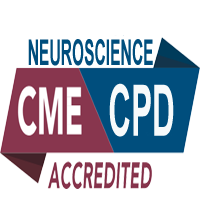
Fahad AlKherayf
University of Ottawa Canada
Title: Timing of Anticoagulant Re-Initiation following Intracerebral Hemorrhage in patients with Mechanical Heart Valves: Meta-Analysis and Survey for Current Practice
Biography
Biography: Fahad AlKherayf
Abstract
Background: rnWhile oral anticoagulation (OAC) is universally indicated for patients with mechanical heart valves (MHVs), the time for OAC re-initiation following anticoagulant-associated intracerebral hemorrhage (ICH) is uncertain. We sought to determine the optimal timing for restarting the OAC and the associated clinical outcomes in patients with MHVs following ICH. Furthermore, we surveyed the practice preferences of North American neurosurgeons and thrombosis experts on optimal timing of restarting the OAC in this particular group of patients.rnrnMethodsrnWe performed a systematic review and a meta-analysis of studies published from January 1950 to April 2014. Medline (Ovid), Embase, Scopus, the Cochrane Library, the Cochrane Controlled Trials Register, LILACS, Web of Science and Global Health were searched for studies reporting the time for re-initiation of OAC in patients with MHV following ICH. Extracted data was on the type of initial ICH, use of cranial surgery, presence of atrial fibrillation, type of MHV, position of MHV, number of MHVs, and timing of OAC re-initiation. In addition, the criteria for study selection included data on valve thrombosis, thromboembolic events or ICH recurrence data, calculated absolute risks, and assessing the effect of anticoagulant resumption timing on ICH recurrence via meta-regression.rnA cross-sectional survey was disseminated to North American members of the American Association of Neurological Surgeons and the International Society for Thrombosis and Haemostasis. Demographic factors, as well as a clinical scenario with 14 modifiable clinical risk factors were included in the survey. rnrnResultsrn23 case-series and case-reports were identified and meta-regression was done. Overall proportion of ICH recurrence was 13% (95% confidence interval [CI], 7% – 25%), while valve thrombosis and ischemic strokes occurred at 7% (95% CI, 3% - 17%) and 12% (95% CI, 5% - 23%), respectively. A trend towards lower ICH recurrence was observed with delayed OAC re-initiation (slope estimate -0.2154, p=0.10). Recurrence rate ranged from 50% with OAC re-initiation at 3 days to 0% with re-initiation at 16 days.rnrn504 physicians completed our survey (response rate= 34.3%). Majority of participants were affiliated with academic centers, and managed ≤ 10 ICH patients with MHV per year. There was wide distribution in response on optimal timing for OAC re-initiation following an ICH: 59% and 60% preferred to re-start OAC between 3 and 14 days following the hemorrhagic event (median = 6-7 days). Smaller hemorrhages (<30cm2), CHADS2 score ≥2, concomitant venous thromboembolism, mitral valve prosthesis, caged-ball valves and multiple valves prompted earlier OAC re-initiation.rnrnConclusionrnFrom our meta-analysis restarting OAC in day 4 seems to be associated with low risk of recurrent ICH or valve thrombosis, however this conclusion is limited by the quality of the studies. We support the urgent need for high-quality randomized studies in this population.rnrnMoreover, based on our collected survey data, there is a wide variation in the current practice of neurosurgeons and thrombosis specialists when they encounter patients with ICH and MHV, though decisions were influenced by patient- and valve-related factors. As our observed variation likely reflects the immense gap in current evidence, prospective randomized trials in this population are therefore urgently needed.rn

